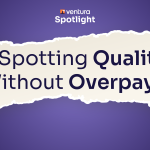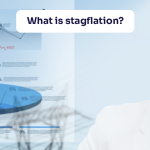Home loan, car loan, personal loan, and maybe gold loan? If you are in debt, you know it can be suffocating. It takes away your freedom. It may hold you back from achieving your financial goals. Of course, in addition to the loans, you also have the monthly credit card bill, don’t you? Millions of people struggle with debt management. However, you can manage your debts much more effectively if you know the way.
This blog post is your guide to becoming a debt buster. We'll explore:
Not all debt is created equal. High-interest debt, like credit cards or payday loans, can quickly spiral out of control due to compounding interest. Conversely, student loans or mortgages usually have lower interest rates but carry hefty principal amounts. Identifying your debt types helps you prioritise and choose the most effective repayment strategies.
A budget is your financial roadmap, guiding you towards debt freedom. Track your income and expenses meticulously, categorising them as essential (housing, food) and non-essential (entertainment, eating out). Allocate a significant portion of your income towards debt repayment while ensuring essential needs are met. Use tools like budgeting apps or spreadsheets to simplify this process.
Small adjustments to your lifestyle can free up funds for debt repayment. Cook more meals at home, opt for free entertainment options, and downsize non-essential expenses. Consider selling unused items or renting out a spare room for additional income. Remember, every penny saved is a penny towards becoming debt-free.
Debt freedom is a marathon, not a sprint. Celebrate milestones, reward yourself for achievements, and stay focused on your long-term goals. Seek support from family, friends, or financial advisors if needed. Avoid taking on new debt during your repayment journey. Remember, building healthy financial habits now prevents future debt struggles.
You have the power to break free from debt. By understanding your situation, implementing smart strategies, and adopting positive financial habits, you can achieve debt freedom and pave the way for a brighter financial future. Remember, you are not alone in this journey. Use the resources available and stay committed to your goals.

Revisiting the Gold-Silver Ratio Amid Silver's Outperformance
2 min Read Dec 22, 2025
Midcaps: Sweet Spot or Danger Zone? | What HSBC MF’s Cheenu Gupta Thinks | Ventura Spotlight
2 min Read Dec 17, 2025
Understanding Option Pin risk near expiry
2 min Read Dec 12, 2025
EPS in the Stock Market
2 min Read Dec 12, 2025
What is stagflation?
2 min Read Dec 10, 2025